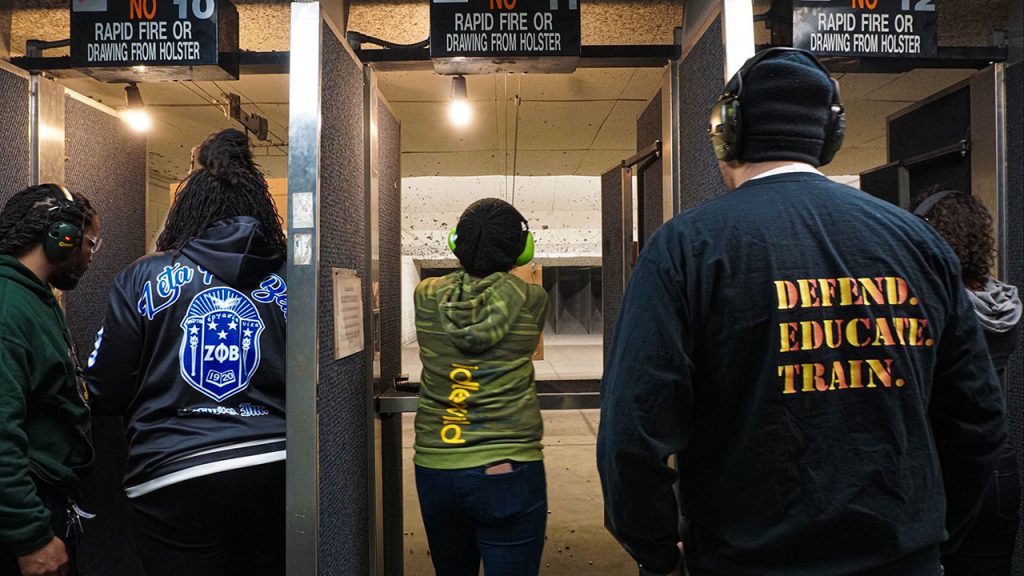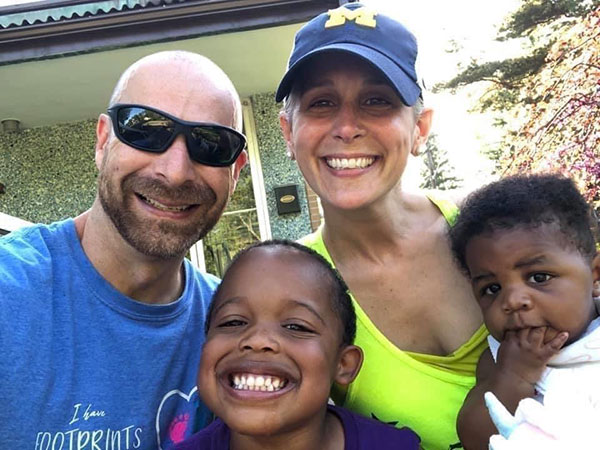Anxiety Rising: Marginalized Michiganders Fear White Backlash, Violence
Religious and ethnic minorities have long felt targeted by the Trump administration. Now in the heat of a Presidential election, pandemic and armed white backlash, their anxiety levels are rising.

Images of white male rage have become a feature of 2020, adding to a chaotic mix of civil unrest, environmental and health disasters and a contentious presidential election.
Earlier this year, armed white Michiganders unhappy with Gov. Gretchen Whitmer’s pandemic emergency orders showed up to vent their anger — without masks, but with guns. Some of these men emerged as conspirators in plots to kidnap the governor and attack the state Capitol and law enforcement.
“They’re trying to steal your guns. Okay?” says Brandon Caserta, one of the five men charged in federal court in the terrorist plot to kidnap Whitmer. “That’s number one. If you don’t realize that, then you’re about to be a victim.”
“Marginalized people always have their guard up because historically [we] have had to protect and fight. And so this election, it’s no different.” — Councilperson Raquel Castañeda-López
But this isn’t a story about white male rage. This is a story about anxiety.
Generations of systemic racism means people of color and immigrants are often worried. A Presidential election just adds to the baseline of anxiety.
Rob Davis owns Harry’s Army Surplus in Dearborn. He says it’s been a banner year for his shop. Of the 5 million first-time gun buyers this year, 58% were black. Although Davis says the type of equipment being sold has changed in the past few months.
“The pandemic was more preparing for home and hunkering down,” Davis says. “And this is more now for defensive purposes. And just protection. I guess protection is is the main word.”
Listen: How ethnic and religious minorities are responding to an increase in white terrorism.
Voices from Metro Detroit
Council Member Raquel Castañeda-López, District 6
The US Census Bureau estimates white people will be a minority by 2045. So Castaneda-Lopez see why many Trump voters — which Pew Research estimates that 88% to be white — might feel threatened.
“The pro Trump folks are thinking they’re going to [lose] their sense of identity and their way of life is going to be taken away,” Lopez says.
But she says whiter, wealthier people are not the ones most traditionally most affected by institutional inequality.
“Marginalized people, people of color, Black and brown people always have their guard up because historically [we] have had to protect and fight,” Lopez says. “And so this election, it’s no different, right? You’re kind of fighting the same dragon we’ve been fighting for decades and for generations.”
Mary Blair, Ferndale

Mary Blair lives in Ferndale with her husband Rael and their two kids.
For the history teacher, the past four years have been unnerving.
“All of a sudden the criticism of a president, being against his political ideologies, somehow makes you not American, somehow makes you unpatriotic and that’s a very dangerous and slippery slope.”
Blair and her husband are white. Their two adopted children are Black. For her the prospect of another four years under Trump has her questioning everything.
“We have some neighbors that are close to us and they are Canadian and they have provided us with some immigration lawyer information,” Blair says. “This is still within the United States but we have looked into maybe moving off the mainland to someplace like Hawaii”
Dawud Walid, Southfield
Trump has not committed to a peaceful transfer of power and has made baseless accusations of voter fraud — saying, “the ballots are a disaster.”
Dawud Walid, Executive Director of the Michigan chapter of the Council on American-Islamic Relations, says statements like that could lead to civil unrest, and that worries him.
“What type of violent reactions could take place on the streets?” Walid says. “I’ve heard this concern from people in our community.”
He says Muslims are not a monolithic voting bloc, but many have felt scorned by the administration.
“It’s been a rocky road for Muslims in the past four years,” Walid says. “The first Executive Order of the President of the United States of America was the Muslim travel ban. Literally his first act was targeting Muslims.”
Chad King, Detroit
Protection for Detroiter Chad King means carrying a gun.
“As African Americans, particularly those of us who decided to be self determined and be empowered and be responsible for our own safety and the safety of our families, we don’t acquire firearms or seek training or seek licensing to propagate violence” King says. “We seek to do those things to prevent a violence that is already present.”
“A veil has been lifted. The things that were covert now appear to be more overt, especially when we talk about racism.” — Chad King, gun owner
King is a co-founder of the Black Bottom Gun Club. Membership in that group and the National African-American Gun Association has expanded dramatically this year.
“A veil has been lifted. The things that were covert now appear to be more overt, especially when we talk about racism and incidents of racism and, you know, systemic depictions of what racism is and what it looks like,” he says.
King says he will vote to fight inequality. He says he carries a gun to prevent the violence already present, but he won’t use it to fight racism.
“I don’t believe that overcoming racism is incumbent upon the person who is experiencing racism,” King says. “That’s not on us. That’s not on me. It’s incumbent on the person who has racist ideology to overcome their racist ideology.”
Trusted, accurate, up-to-date
WDET is here to keep you informed on essential information, news and resources related to COVID-19.
This is a stressful, insecure time for many. So it’s more important than ever for you, our listeners and readers, who are able to donate to keep supporting WDET’s mission. Please make a gift today.
